
Jandek is the musical project of Corwood Industries, a record label operating out of Houston, Texas, U.S.. Since 1978, Jandek/Corwood Industries has independently released over 150 albums/DVDs of unusual, often emotionally dissolute folk and blues songs without ever granting any interviews or providing any biographical information. The name "Jandek" is intended to refer specifically to the musical project and not an individual. Jandek often plays a highly idiosyncratic and frequently atonal form of folk and blues music, often using an open and unconventional chord structure. Jandek's music is unique, but the lyrics closely mirror the country blues and folk traditions of East Texas.

Ready for the House is the debut studio album by Jandek, and was released in 1978 by his own Corwood Industries label, with the catalog number #0739. The artist has said in letters that the number was meaningless. Corwood Industries reissued the album three times on CD, first in 1999, then sometime in the early 2000s, and again in 2005. Jackpot Records, with exclusive permission from Corwood, reissued the album on LP in 2008.

Six and Six is the second studio album by American musician Jandek, and the first to be released under the Jandek name. It was released in 1981, by Corwood Industries (#0740). There have been two CD reissues so far, each adding more silence between the tracks.
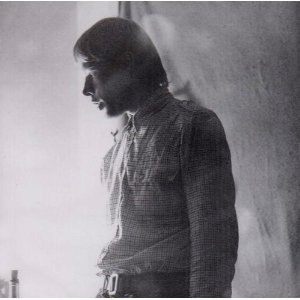
Later On is the third studio album by American singer-songwriter Jandek, and the second released by Corwood Industries (#0741) in 1981. It was reissued on CD in 2000.

Chair Beside a Window is the fourth album by avant- folk/ blues singer-songwriter Jandek, and Corwood Industries' first release of 1982 (No. 742).

Living in a Moon so Blue is the fifth Jandek album, and was issued as Corwood 0743 in 1982. It was reissued on CD in 2001.

Staring at the Cellophane is the sixth Jandek album, and his third of 1982. It was released as Corwood 0744. It was reissued on CD in 2001.

Your Turn to Fall is the seventh Jandek album, and was released as Corwood 0745. It was reissued on CD in 2001.

The Rocks Crumble is the eighth Jandek album, released as Corwood 0746. It is his third release of 1983, and is the first Jandek album to feature extensive use of drums and electric guitar. It was reissued on CD in 2001.
Telegraph Melts is the twelfth album and first release of 1986 by musician Jandek. It was released as Corwood Industries #0750.
You Walk Alone is the sixteenth album by Jandek, and the first of two released in 1988. It is Corwood Industries (#0754), and is the first album by the "blues rock" band that followed the apparent meltdown of the original "garage rock" band.

Graven Image is the 23rd album by Jandek, released in (1994) as Corwood Industries release #0761. Although a vinyl test pressing was created, it was the first Corwood product to be issued on CD, and was remastered and re-issued in 2004.
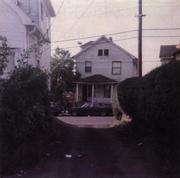
Glad to Get Away is the 24th album by Jandek, and was released (1994) as Corwood Industries #0762. It continues the acoustic sound of the prior two albums.

The Beginning is the 28th album by Jandek. It was released in 1999, and was given Corwood Industries release number 0766. It is considered the final album of Jandek's "second acoustic phase".
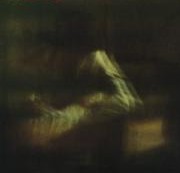
Put My Dream on This Planet is the 29th album by Jandek. It was his only new release of 2000. The first of three consecutive a capella albums, it is Corwood Industries #0767.
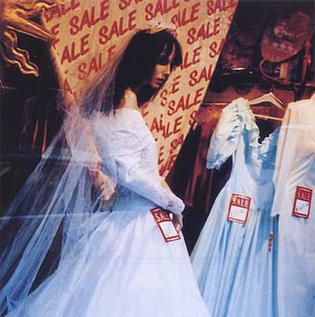
The Gone Wait is the 35th album by Jandek, and the first of two released in 2003 It is Corwood Industries release #0773, and is the first release to feature the artist accompanying himself on fretless electric bass, rather than on his usual acoustic or electric guitar. The album's title was also the name of a song on Jandek's 1993 release Twelfth Apostle.
Jandek on Corwood is a documentary about veteran reclusive folk/blues artist Jandek. Unlike most popular music documentaries, the subject himself is not seen in the film in any way; instead, various critics, disc jockeys and journalists, many of whom have had some contact with the notoriously reclusive artist, discuss Jandek, his equally mysterious independent record label Corwood Industries, and his music.
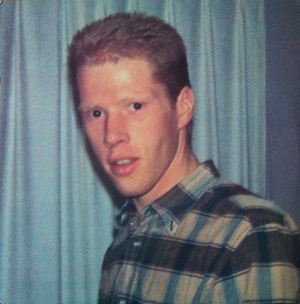
Lost Cause is the 21st album by Jandek, and his only of 1992. Corwood Industries release #0759, it marks the end of the "electric phase". It features a little of all the styles on the previous 20 albums, and ends with a sidelong abstract improvisation called "The Electric End."

Newcastle Sunday is the 45th release by avant- folk/blues singer-songwriter Jandek, released by Corwood Industries. It is a recording of his second ever live performance, recorded at The Sage Gateshead, England.

Down in a Mirror: A Second Tribute to Jandek is a tribute album compiled by Moscow, PA-based independent record label Summersteps Records, released as a follow-up to the label's first Jandek tribute, Naked in the Afternoon. As with Naked in the Afternoon, Down In A Mirror features cover versions of songs by the reclusive avant-folk/blues singer/songwriter Jandek. Some of the artists are members of the Summersteps roster or fans forming one-time combos to participate on the album, but the album also features contributions from Wilco's Jeff Tweedy, Six Organs of Admittance, The Mountain Goats, Kawabata Makoto of Acid Mothers Temple, Lewis & Clarke and Okkervil River.

















